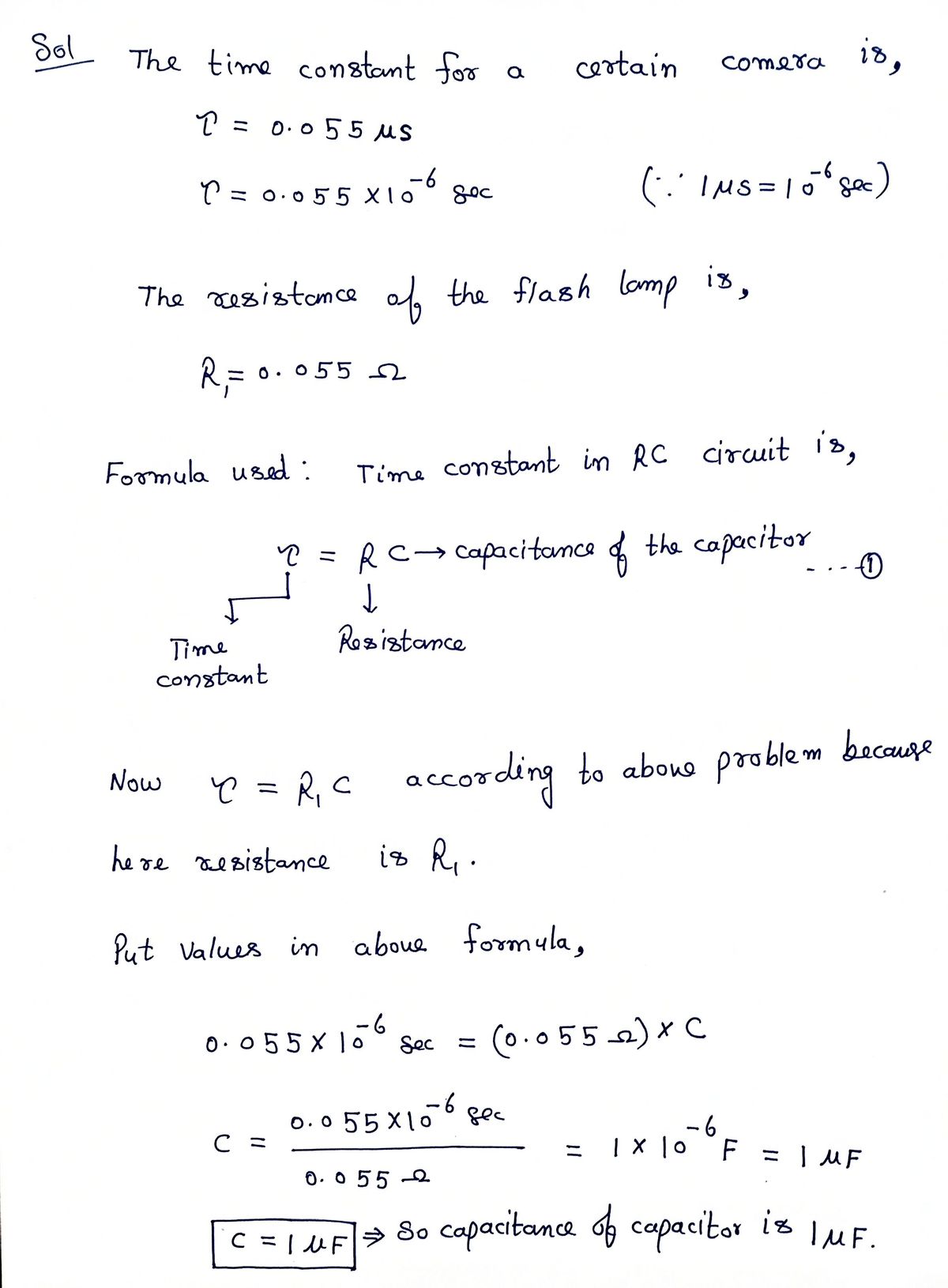The duration of a photographic flash is related to the RC' time constant of the circuit that powers it. For a certain camera the time constant is t= 0.055 µs and the resistance of the flash lamp is R1 = 0.055 Q. Find the capacitance of the capacitor supplying the energy for the flash. Give your answer in µF. Suppose that the camera is modified to use a resistor with a resistance of R, = 795 kN instead. If the capacitor is unchanged, what will the new time constant be in seconds?
The duration of a photographic flash is related to the RC' time constant of the circuit that powers it. For a certain camera the time constant is t= 0.055 µs and the resistance of the flash lamp is R1 = 0.055 Q. Find the capacitance of the capacitor supplying the energy for the flash. Give your answer in µF. Suppose that the camera is modified to use a resistor with a resistance of R, = 795 kN instead. If the capacitor is unchanged, what will the new time constant be in seconds?
Related questions
Question
100%
![The duration of a photographic flash is related to the RC time constant of the circuit that powers it. For a certain camera, the time constant is \( \tau = 0.055 \, \mu s \) and the resistance of the flash lamp is \( R_1 = 0.055 \, \Omega \).
Find the capacitance of the capacitor supplying the energy for the flash. Give your answer in \(\mu F\).
Suppose that the camera is modified to use a resistor with a resistance of \( R_2 = 795 \, k\Omega \) instead. If the capacitor is unchanged, what will the new time constant be in seconds?
\[
\tau =
\]](/v2/_next/image?url=https%3A%2F%2Fcontent.bartleby.com%2Fqna-images%2Fquestion%2F6ec57636-08bb-40ad-b0ca-9d615e386c7c%2Ffc03b60e-022a-4d14-bd9e-45a9a704be95%2F7sv4luq_processed.png&w=3840&q=75)
Transcribed Image Text:The duration of a photographic flash is related to the RC time constant of the circuit that powers it. For a certain camera, the time constant is \( \tau = 0.055 \, \mu s \) and the resistance of the flash lamp is \( R_1 = 0.055 \, \Omega \).
Find the capacitance of the capacitor supplying the energy for the flash. Give your answer in \(\mu F\).
Suppose that the camera is modified to use a resistor with a resistance of \( R_2 = 795 \, k\Omega \) instead. If the capacitor is unchanged, what will the new time constant be in seconds?
\[
\tau =
\]
Expert Solution
Step 1

Step by step
Solved in 2 steps with 2 images
